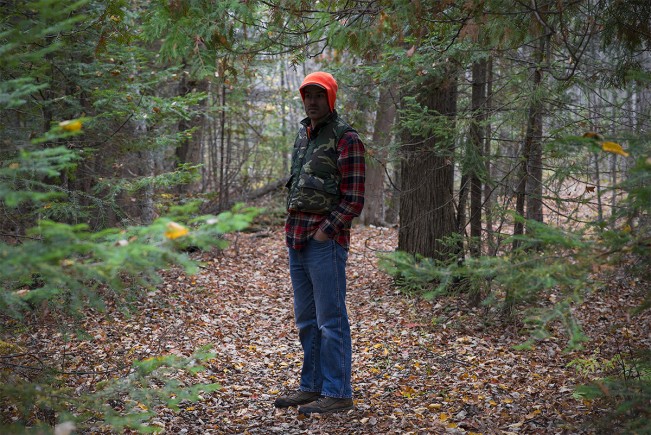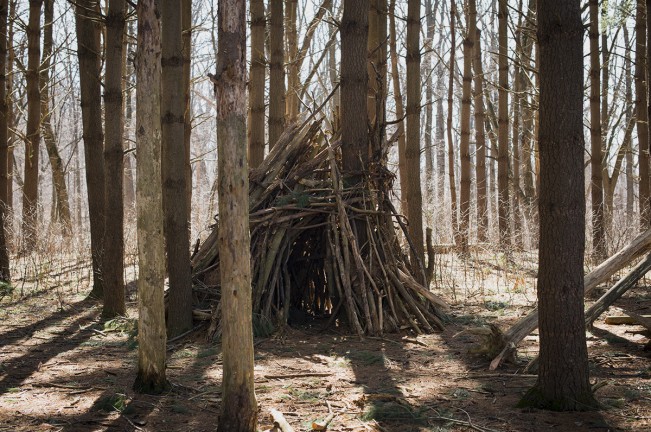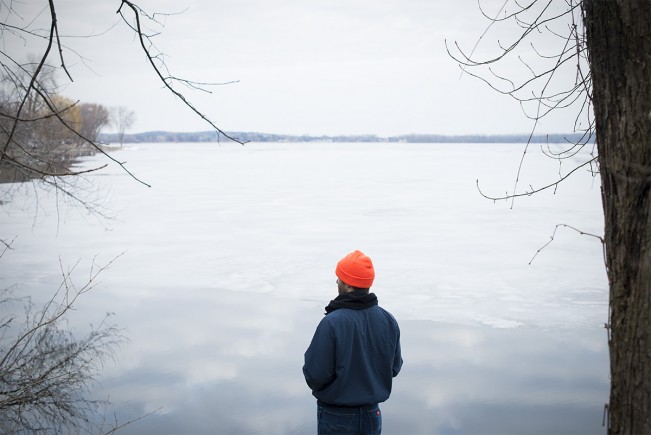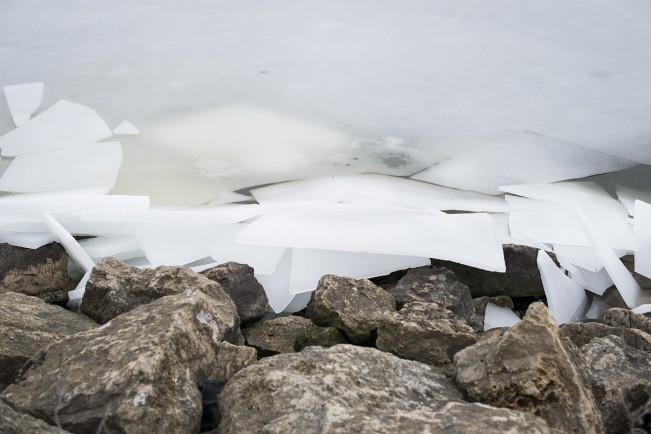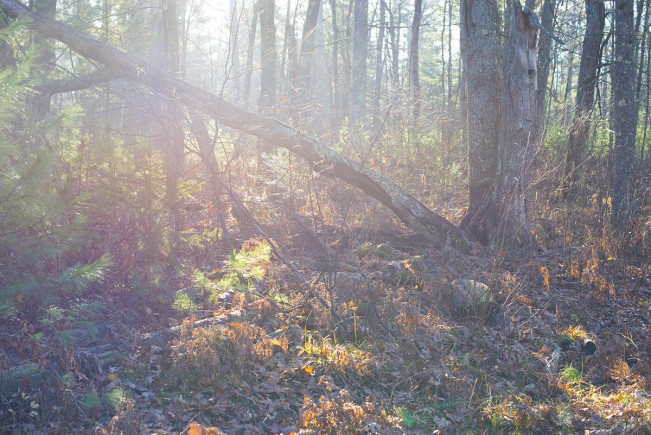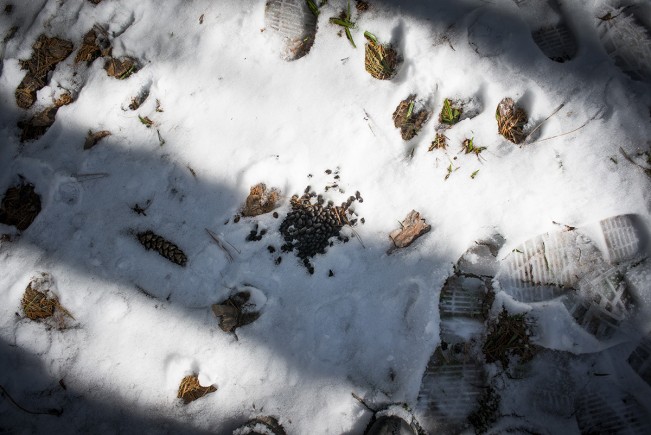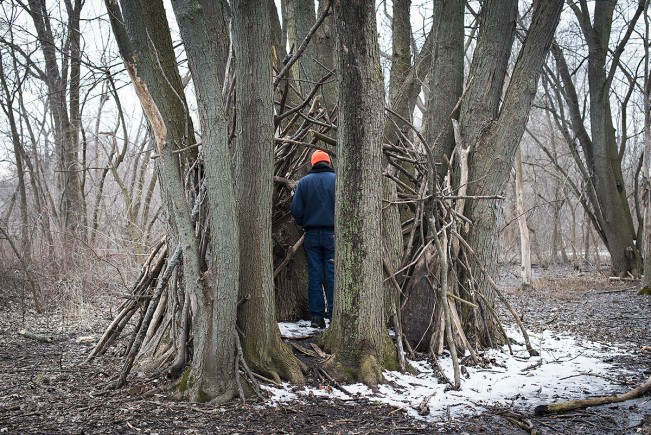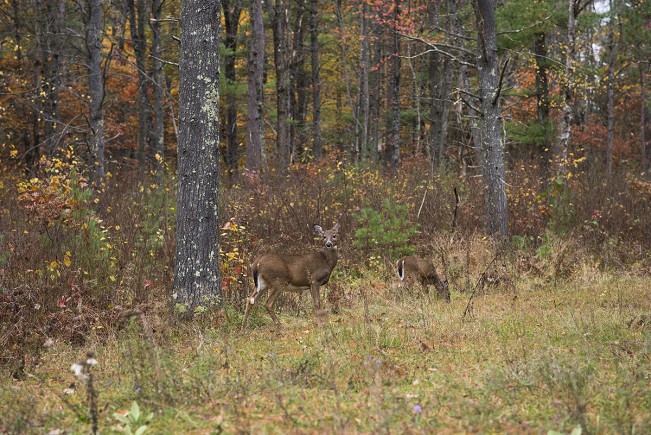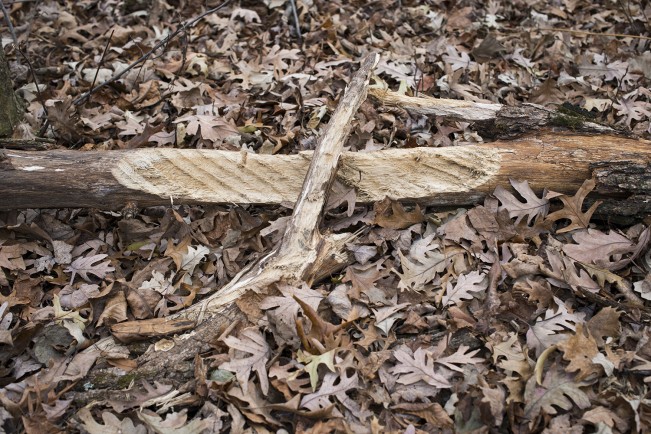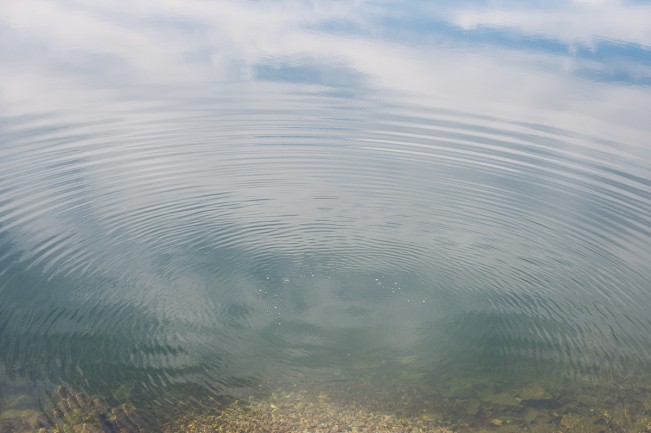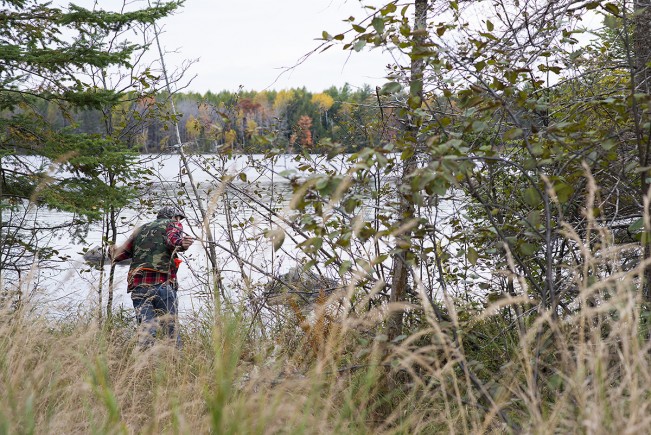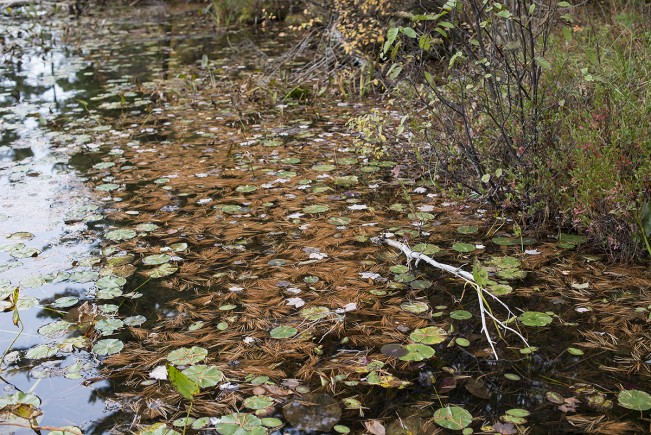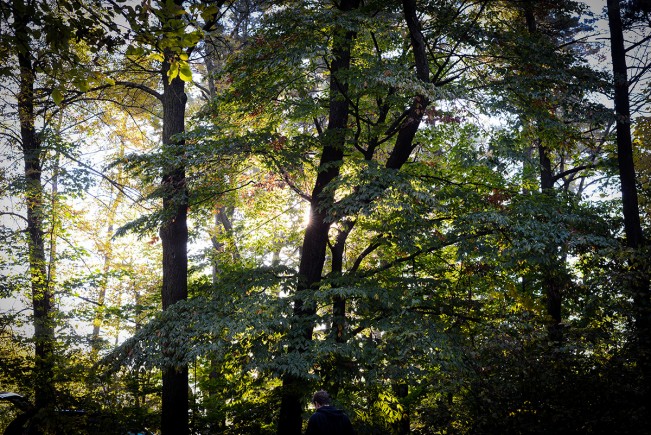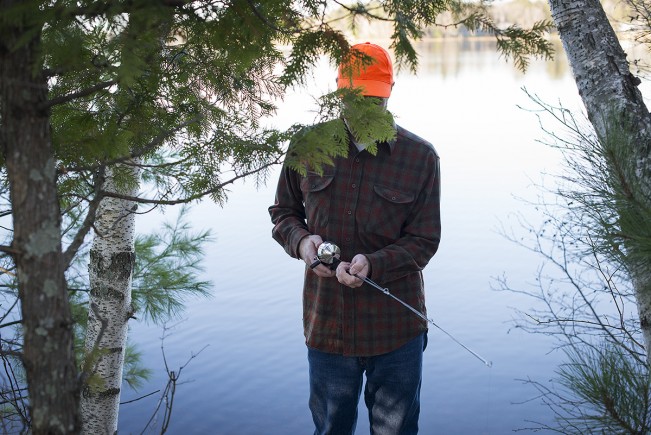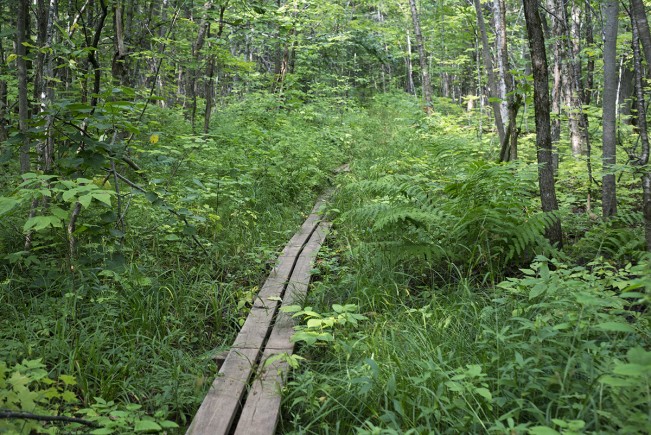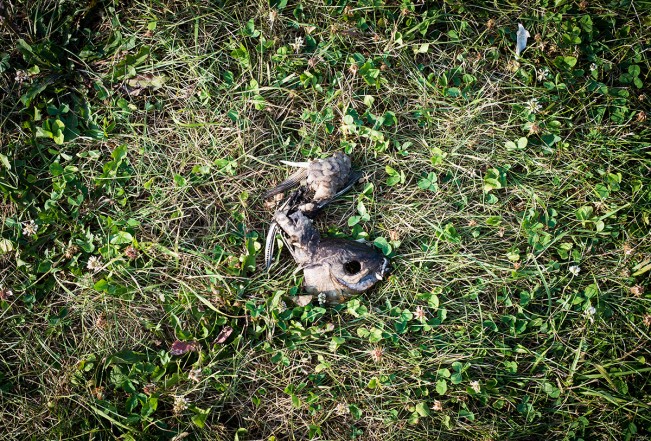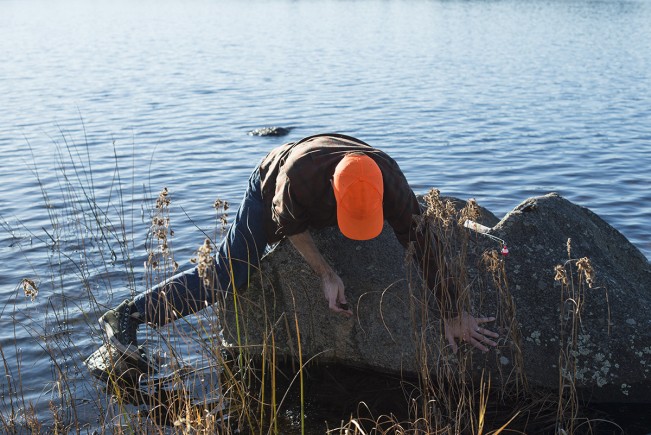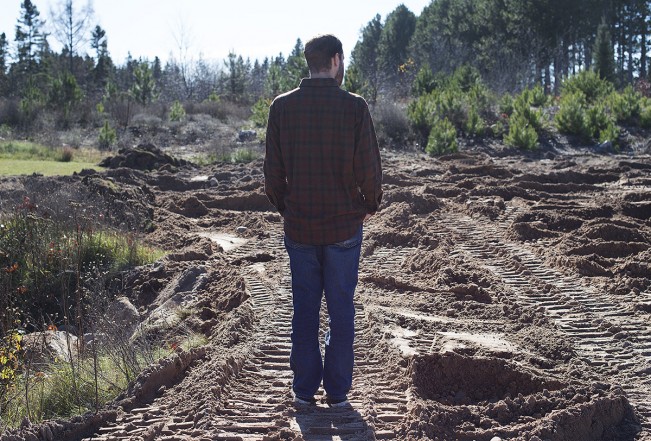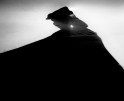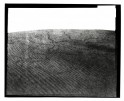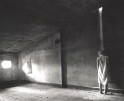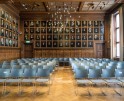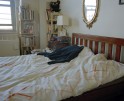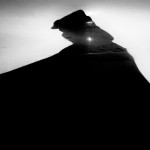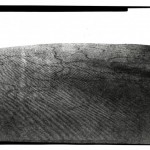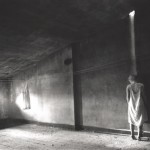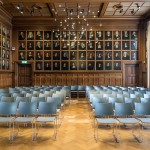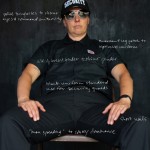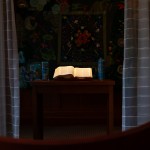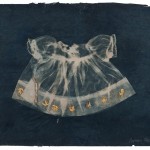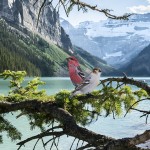Animalia Week: Sarah J Stankey: Camp
This week on Lenscratch, I will be featuring artists whose work explores the complex relationships between humans and the natural world. This partnership between us and animals has always been a shaky one, shifting power back and forth between the two in a constant battle for survival. As many experts accept that we are now in an era of human derived impact, the Anthropocene, the actions we take to influence the environment should be closely examined. I think we should be finding ways that humans can live harmoniously with the wild and preserve it for future generations to admire. I am beginning this week’s posts with my own current work in progress, Camp.
Sarah Stankey is an MFA candidate in photography at the University of Wisconsin-Madison and a graduate associate with the Center for Culture, History and the Environment at the Nelson Institute for Environmental Studies. Sarah earned a BFA in photography from the Milwaukee Institute of Art & Design in 2013. Her studio practice includes photography, letterpress and research within zoology, limnology and geology. Her interest in the natural sciences and fine arts includes the history of museums, taxidermy and cabinets of curiosity. Her photographs have been exhibited in group shows regionally and nationally, including the Portrait Society Gallery in Milwaukee, the John Michael Kohler Arts Center in Sheboygan and Soho Photo Gallery in New York City. Sarah’s work has been published both online and in print including Art Photo Index, Lens Culture, Aint-Bad Magazine and F-Stop Magazine. Sarah also fills her time working in museums on campus and as an exhibitions editor and contributing writer for Lenscratch.
Camp
My home state of Wisconsin has had a strong cultural tradition of interacting with nature as hunters, hikers, farmers and loggers. These activities provide people with a deep connection to the land. Now more than ever, these actions play a direct role in either harming the land or having the potential to help shape and balance an already fragile ecosystem.
In the series, Camp, the male figure is a metaphor for all humans. People camp to visit the wild and inhabit the landscape temporarily. This curiosity to explore nature can help us reconnect with the reasons why we should preserve it. In doing so, lessoning fear of interacting with flora and fauna, and teaching new generations not to live a life deprived of nature.
Posts on Lenscratch may not be reproduced without the permission of the Lenscratch staff and the photographer.
Recommended
-
Jonathan Silbert: InsightsFebruary 19th, 2026
-
Olga Fried: Intangible EncountersFebruary 18th, 2026
-
Anne McDonald: Self-PortraitsFebruary 17th, 2026
-
Review Santa Fe: Leslee Broersma: Tracing AcademiaFebruary 11th, 2026
-
Review Santa Fe: Ilana Grollman: Just Know That I Love YouFebruary 10th, 2026

